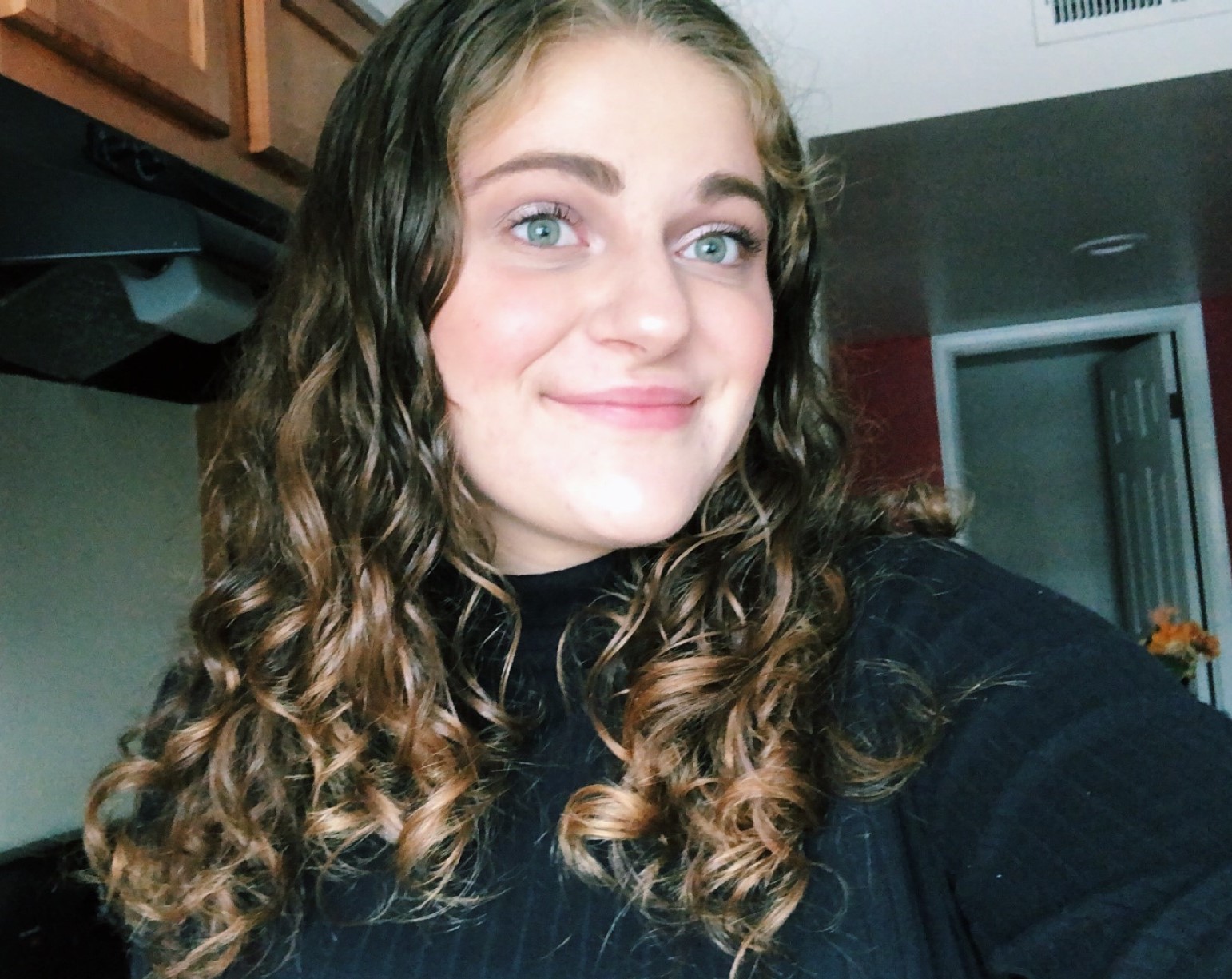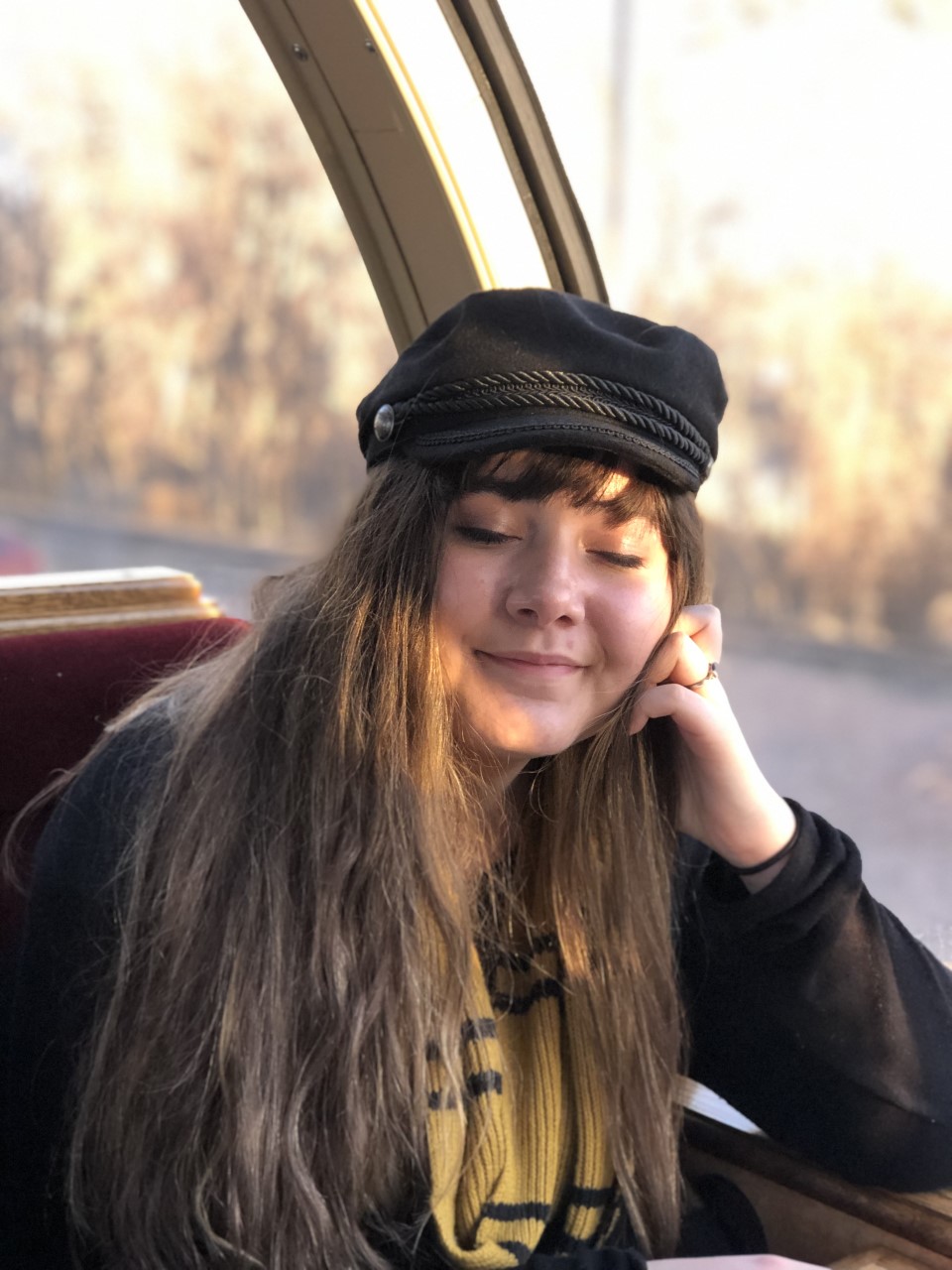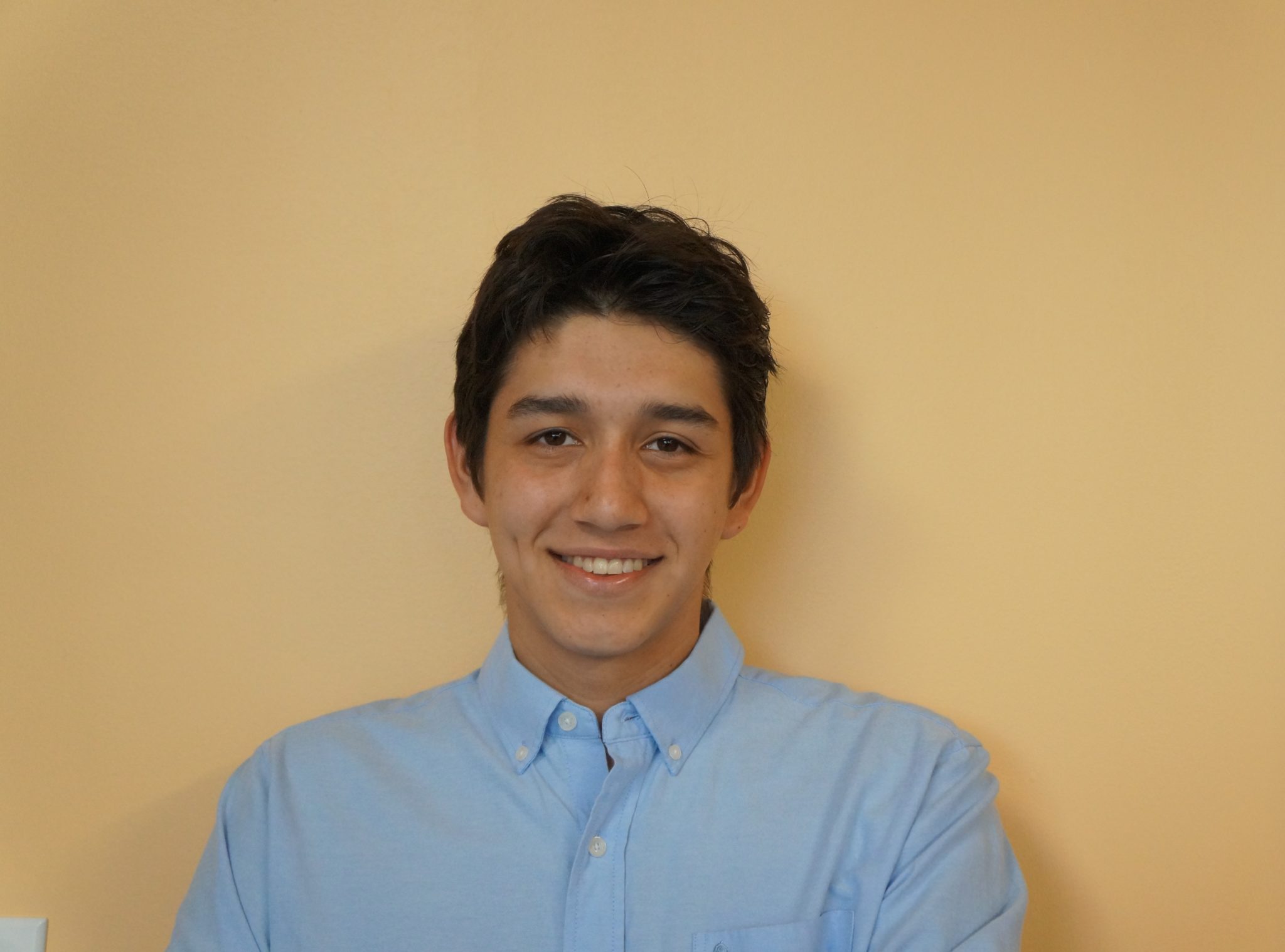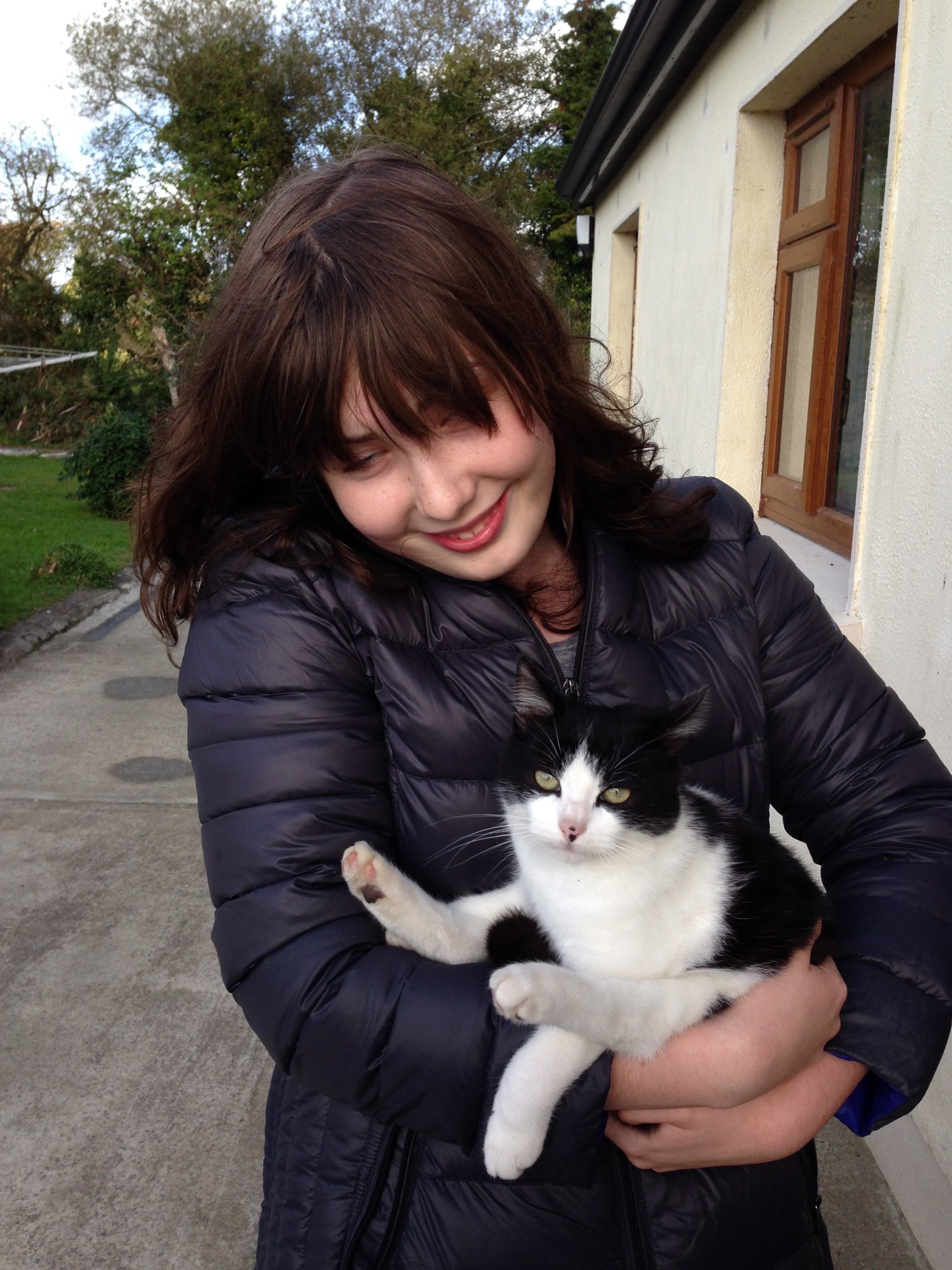After classes transitioned to remote delivery in mid-March, many Rams found themselves learning & working in new places and in new ways. Four Department of Biology students reflect on how the COVID-19 pandemic has changed their experiences as students and how they’ve overcome the challenges they are facing.
 Name: Lauren Thomas
Name: Lauren Thomas
Major: Biology with a chemistry minor
Year: Second year
Plans: Interested in the Professional Science Master’s Degree Program in Zoo, Aquarium, and Animal Shelter Management
How has the COVID-19 pandemic changed your experience as a student?
At the beginning of March, I had finally established my schedule and routine and was feeling confident in all of my classes. I have never taken online courses before, so this experience was completely new. I find that I just simply cannot grasp the material in my courses as well as I used to. It takes more energy and focus for me to be able to understand the content of my classes. Most of the lectures in my courses are pre-recorded, and it’s hard to not have the face to face interaction with my professors and instructors. When classes were taught in person, the instructors and professors were able to look at our faces and gauge whether or not we were understanding the material and their explanation of the information, and now that is not the case.
It’s also been difficult to balance giving myself grace as a college student taking advanced science courses in the midst of a global pandemic, and not wanting my grades and GPA to be affected by something out of my control.
How have you tried to overcome those challenges?
I have been trying to take advantage of the resources my professors and instructors are providing. I participate in office hours and discussion boards. It has been helpful to put my experience navigating these challenges in perspective by realizing how difficult this transition has been for faculty, too. I know I’m not the only one struggling or frustrated with what has happened, it’s a universal issue.
I’ve tried to take care of my mental health now more than ever before. I keep regular contact with my therapist and take breaks to do things that I enjoy so my days aren’t completely wrapped up in school work.
What has been the most unexpected part of this transition?
I miss being on campus and in the presence of other students, more than expected. I’ve taken social interaction for granted. I didn’t realize how much I thrived being surrounded by other students in the library, student center, or even walking down the plaza.
What have you learned from this experience?
I am capable. While it is extremely hard to learn some of this content online, it is not impossible. I am incredibly proud of my generation of students for adapting to this new learning environment with grace.
What advice do you have for other students?
Your emotions and responses to this pandemic are completely valid. If you are scared about getting sick, worried about your loved ones, anxious about your courses, frustrated with your professors, disappointed that graduation has been canceled, angry that you lost your job, or unsure how you will make it through, it’s valid. We are all living through this traumatic experience and have different ways of processing. We are all grieving something, don’t suppress your emotions. The first thing we need to do to start processing some of this trauma is to name our pain and acknowledge what we are facing.
You can’t control the government, or your professors, or your boss, or your landlord, or your neighbors, or your friends or family. What you can do is to continue to wash your hands, stock up on compassion, and practice social distancing. Let yourself feel the grief and keep going.
What advice do you have for instructors?
I am lucky that most of my professors and instructors have been incredibly understanding and willing to work with students at this time, but some of my courses are twice as hard as they were before. In these classes, the rigor of the material has increased dramatically and we have more assignments and work to do. Many of us students are incredibly stressed and anxious. A great portion of us are struggling financially and worried about how to pay rent, buy groceries, and manage tuition costs. We are struggling mentally as well, by worrying about the health and safety of our family and friends. Please, give your students consideration and compassion.
 Name: Silvana Cano Hernandez
Name: Silvana Cano Hernandez
Major: Biology
Year: First Year
Plans: Planning on getting a Masters in Forensic Investigation
How has the COVID-19 pandemic changed your experience as a student?
I’ve moved back home, and it’s my whole family here and we’re all working and doing homework, it’s been kind of crazy. Moving back and having all these boxes and things to put away made the first two weeks of online classes really hard.
I’m also not really good with technology, so the online classes have not been my favorite thing. If I don’t have personal contact in a class, I feel like I can’t ask questions. I feel like I’m being annoying. That’s been really challenging! It’s been really hard for me but I’ve been doing my best to keep track of everything.
How have you tried to overcome those challenges?
I have to accept that I’m not being annoying if I ask questions about a class. Especially with my science classes, that’s been a challenge. I go to the virtual office hours that the teaching assistants and professors have set up, where it’s easier for me to ask questions without feeling like I’m being annoying.
The professors have been really understanding about the fact that we’re online and it’s hard for everyone. At first it was really scary, but I go to every office hour, all the synchronous classes, I listen to the professors’ lectures, what I like to think of as podcasts. I’ll listen to those once or twice.
After I unpacked my things and got back to having my desk and my books really organized, I was able to focus. I have an art studio in my basement and I can go down there and be alone and really connect with the class.
What has been the most unexpected part of this transition?
I’m able to share more things with my parents. Being away, I wasn’t able to be with them as much, so being here allows me to cook for them and hang out with them, that’s been very nice. While I’m cooking, I put on the class, and I want to talk about it with my mom, and I say it in Spanish because we speak all Spanish in our home. That helps me memorize things better.
Remote learning has been really good in the sense that we’re not just done with the semester. We’re here, learning at our computers. I can’t even imagine six years ago, people trying to learn remotely.
What have you learned from this experience?
I can do it. As soon as they announced the move online, I thought, “I’m probably going to fail everything.” But it is doable. We’re all in this together, so I’m not the only one who is trapped in this. As bad as this whole situation is, we’re going to get through this.
What advice do you have for other students?
Hang in there. Ask as many questions as necessary. If you don’t understand something, you don’t have to keep that quiet. Tell your professor or your teaching assistant. If you have buddies in your class, do a Zoom session and talk about the material. I’ve been doing that a lot and it’s been really nice.
What advice do you have for instructors?
Be patient with your students. Understand that we’re all trying our best. Everyone’s trying to learn. Some of the wording in courses can be confusing, and when my instructors rephrase concepts, it really helps.
 Name: Andres Trelles
Name: Andres Trelles
Major: Zoology with a business administration minor
Year: Fourth
Plans: Become a Doctor of Veterinary Medicine
How has the COVID-19 pandemic changed your experience as a student?
This whole COVID-19 situation changed everything I expected about my last year at CSU. From moving to online learning to physically moving back to my home state of Florida so I can help my family through quarantine measures, this outbreak has been a crazy ride.
The most challenging part about this transition has been maintaining a steady academic schedule, especially in a different time zone. I’ve had to double the amount of time I spend studying for assignments in my lab courses because the virtual experiences aren’t as effective as the hands-on labs.
My family relies on internet use too, and having many people logged in all at once has caused lots of trouble when it comes to connecting to live sessions or online resources because the internet constantly crashes.
It’s hard studying and working every day within the same four walls. I used to go to the library’s or the biology building’s study rooms and spend hours there to get most of my studying and assignments done.
How have you tried to overcome those challenges?
One thing that has really helped me overcome these challenges has been moving my desk out of my bedroom. It’s not the same type of detachment as I had on campus, but it has really helped me stay away from distractions and getting depressed about being in the same place both during the day and at night.
Another thing that has really been helpful is using my planner. After spring break some professors kept deadlines as they were, but others changed the class schedule. Using my planner has really helped me stay on track with deadlines that changed and those that didn’t change much.
What has been the most unexpected part of this transition?
One of the most unexpected parts of this transition was getting to see how much professors really care about student learning. One of my classes, Evolutionary Medicine, is a personal favorite because the instructor has applied the course to the current pandemic, tying in concepts related to pathogen outbreaks. I am doing better in some classes than I did before this transition.
This isn’t the case with all my classes, there have been some major bumps. Some classes, like labs, aren’t designed to be taught online, and some instructors are re-using recorded lectures that aren’t good quality. Some instructors are worried about integrity and student effort, rather than students adapting to the transition, which adds more stress.
What have you learned from this experience?
Our resources are essential and we’re blessed to have them. Not being able to access the resources so many of us pay lots of money to be part of has been difficult. I am more grateful now and understand how much privilege we have as a community during normal times thanks to this whole situation.
What advice do you have for other students?
Don’t be afraid to make changes to your normal academic schedule because these are not normal times. More importantly, remember that most instructors really do care about your success and if you reach out to them, they will try to accommodate your circumstances to the best of their abilities. Stay healthy and take care of yourself and those around you. This will be over, but this experience will stay with us and will reshape how we see and do things.
What advice do you have for instructors?
Try to look through the students’ lenses. Try to be flexible when possible. Attempt to see the workload and rules for assignments through the eyes of your students. I get how one might be inclined to create more restrictions for students because of how less-controlled the online world is, but keep in mind the time of the students didn’t just get extended to work in your class. Multiple classes are being taken the same way and many students are dealing with issues they never had to before in not only one class. From small problems like personal internet issues to big ones like a sick family member needing the care and attention of a student during this horrible pandemic, these issues take away time from students who are trying to adapt to learning from home. Many don’t have a job anymore as well and some don’t have the means to pay for essentials. Keep all of this in mind before sending emails to students asking for more “effort” because assignment grades are going down. We will all come out better from it.
 Name: Aisling Kyne
Name: Aisling Kyne
Major: Zoology
Year: Third year
Plans: Veterinary school and working with infectious disease in wildlife
How has the COVID-19 pandemic changed your experience as a student?
I would rather be in the lab, experiencing everything. I miss going to the CSU recreation center. I feel as though I am falling behind with my research project because I have not been able to be in the lab. Having said that, my mentor for my project, Dr. McGrew, has been amazing. She helped me prepare for Celebrate Undergraduate Research & Creativity (CURC), which was moved online.
How have you tried to overcome those challenges?
I try to keep on a strict schedule. I work on school work for 6-8 hours from 7 am to 3 pm. I try to make sure I schedule everything I have to work on for the day the morning of. I switch subjects every 30 minutes so that I don’t get distracted.
As far as CURC goes, it was been a lot of emailing back and forth with my advisor, who has helped me a lot. We used a new format called iPoster. It’s actually nice because you are not limited on the amount of information that you add. I am just happy that they are still holding the event.
What has been the most unexpected part of this transition?
I think I expected the worst, in all honesty. I am happily surprised at the level of communication that the professors are having with students about the transition. I would never have chosen online learning. That being said, I believe that the CSU staff is doing a good job of making content for people like me.
What have you learned from this experience?
Things will change, and it will be scary, but the world will keep spinning and most people will keep trying to do their best.
What advice do you have for other students?
If you need help in your learning, communicate that with your instructors.
What advice do you have for instructors?
Their help is awesome! Just remember that some students are extremely technically challenged, so it may take a bit longer to figure out some of these programs.